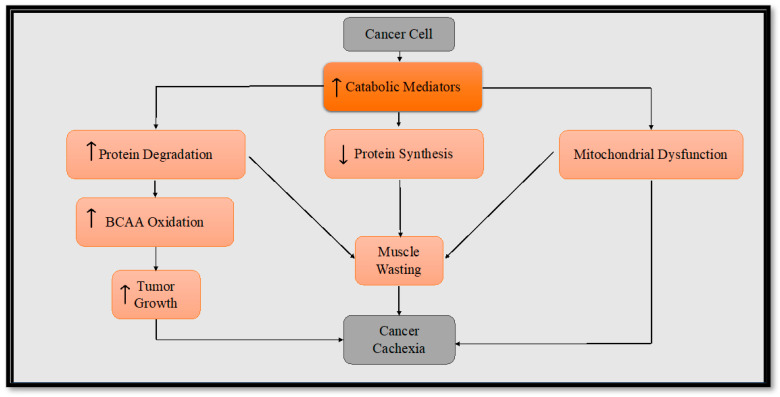Figure 1.
Diagram illustrating the underlying mechanisms of cancer cachexia. To sustain its growth, cancer calls release procachexic factors in the blood stream, thereby facilitating the progression of cancer cachexia. The procachexic factors trigger heightened protein degradation, reduced protein synthesis, and impaired mitochondrial function that all contribute to cancer cachexia. The escalated protein degradation in skeletal muscle boosts the availability of BCAAs. The tumor cells then harness this increased reservoir of BCAAs as a substrate to fuel their growth. The increased cellular growth of the tumor subsequently instigates the metastasis of the cancer cells, prompting their dissemination to various regions of the body.

